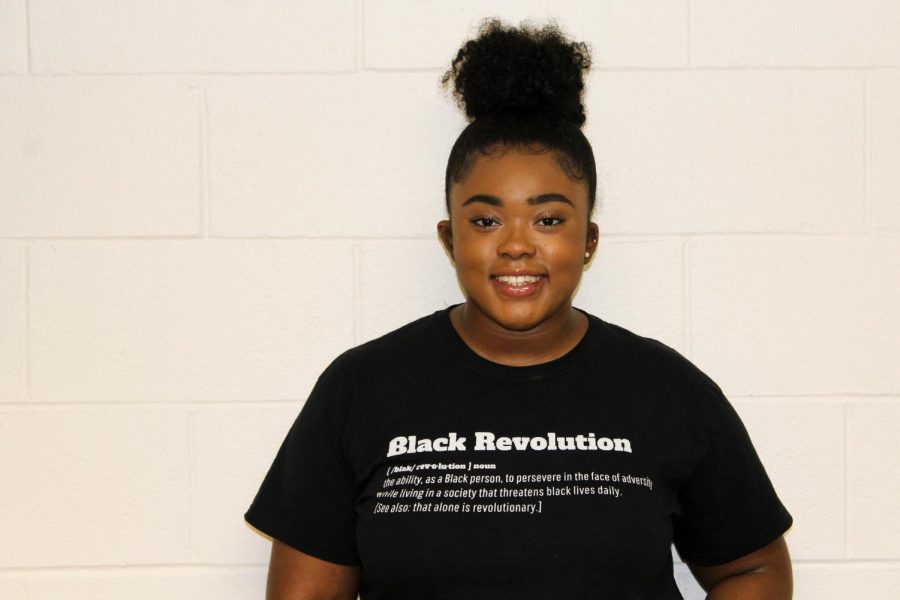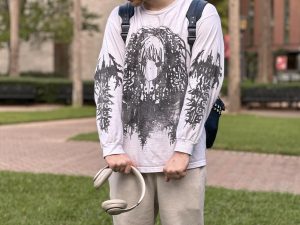Column: How Loyola can improve the Black experience year-round
February 28, 2021
In fall of 2018, I came to Loyola an excited 18-year old Black female hailing from Atlanta, Georgia and a predominately White all-girls school. To say my experiences were unique would be an understatement.
I was eager to come to a city as diverse as New Orleans and even more eager to experience that diversity on campus. I had a plan, I knew what I wanted to study, and I knew what I wanted to accomplish. At the time, I was an accounting major in the College of Business and knew that I would be challenged academically. However, I was not prepared for one challenge: being the only student who looked like me.
I could count on one hand how many Black women I saw both in class and in faculty. This statement was true in 2018 and the statement is true presently, nearly three years later. Being unprepared for that reality is ironic considering the fact that I had attended a predominantly White middle and upper school. However, prior to arriving on campus, Loyola had prided itself on its diversity and inclusion, especially in comparison to its neighbor, Tulane University. For this reason, I chose to attend Loyola.
I then realized that Loyola and I had very different definitions of “diversity” and “inclusion.” Knowing that, I was determined to get involved on campus, make my presence known, and hopefully inspire other Black women to follow suit.
My determination to make experiences for myself has put me in the position to be surrounded by other Black students through leadership. I found that the majority of the student leaders on campus, in fact, looked like me and shared in my experiences. The university knows this and often Black students, including myself, are only recognized or contacted during moments of our publicized oppression in the media.
We feel used. I feel used. My friend Destiny Sanders said something that stuck with me: February, the shortest month of the year, “should not be the only time Black voices are heard on campus.”
If Loyola wants to improve the Black experience year-round, they should hear us year round, not when it’s convenient and not when our oppression is publicized. Provide us with resources, provide us with faculty, provide us with spaces designed for us, and provide us with transparency. We constantly hear reasons, more-so excuses, for why Black faculty or faculty of color have not been hired. Be more transparent about those plans. Allow us to get involved in the hiring processes. Students are more comfortable and more likely to retain information and graduate college when they have professors with similar backgrounds and relatable experiences.
Support the Black students who make up the majority of the student leaders. Last year, 90% of student leaders were Black students and to not have that reflected in faculty is disheartening. Hiring Black staff who do not teach is not enough. Hire Black teachers to teach Black subjects.
Being a finance and marketing double major, I have very few non-business electives. Two courses I chose to take were, Africa and Its Diasporas and Modern and Contemporary African Art. Both professors were very knowledgeable and acknowledged their position of privilege, however, they were both White women.
Learning about that kind of material from people who simply could never relate was uncomfortable and disappointing. Loyola needs to do better. The empty performative statements must stop. Improve the Black experience by taking disciplinary action against faculty and staff members who make racist comments.
Provide students with a five-year hiring process diversity plan and more classes geared toward Black students. Being Black in America is hard as is. Black students need more mental health practices and plans designed specifically for them. Black students do a lot for the university and yet there is not enough being done for us. Black students deserve better and Loyola must do better.








Dr. Dawn Williams • Mar 3, 2021 at 4:51 am
I agree with you. I am a Loyola graduate from the mid 70’s . Since my graduation I have attended Tulane School of Public Health, the Univetsity of New Orleans and I obtained my terminal degree from Jackson State Univetsity. I have been on the campus several times over the past 45 years and find the campus quite the same in terms of the climate. Yes it was not very diverse in the early seventies and still is not today. I have 4 children who are all at this point college graduates. I never encouraged them or did I try to persuade them to attend Loyola. Three of them attended catholic high schools in New Orleans and latter Colleges in Louisiana. Two graduated from Xavier University. I recount all of this to make a point that as higher education professional I read all the reports and always look at the numbers and the fine point. I review the retention information and graduation information. The numbers have not changed in any significant amounts. I still thank Loyola for my education and helping me to achieve the life goals that I have accomplished despite the fact that my academic advisor discouraged me years ago from attending graduate school. Today I thank her because she only pushed to be who I am today.
Edith Gee Jones • Mar 2, 2021 at 8:27 pm
Unfortunately, the more things change, the more they stay the same. I was a member of the Stuent Affairs staff from 1980 to 1993. I am a black alumnae of the Gradute Education Program. While I enjoyed my tenure at Loyola, minority hiring of faculty was a challenge then.
The Business School had two black faculty members. Liberal Arts had one black faculty member in English , one in History and one in Psychology. There may have been one black member of the Theology Department. At the end of my tenure there was a black VP for Administration (Dr. Norman Roussell).
I would suggest that a review of the pay scale for faculty be conducted to determine Loyola’s standing nationally. Black Ph.D’s have a wealth of options these days; corporate as well as higher education. There is no need for self sacrifice. Is Loyola competitive in the pay arena? If not, that may be part of the problem.
Edith Gee Jones
Former Director of Career Planning and Placement